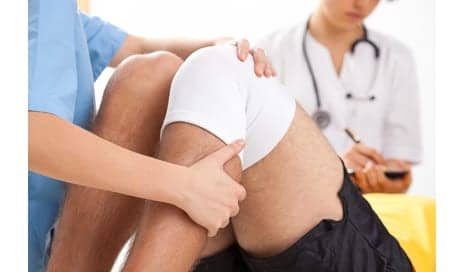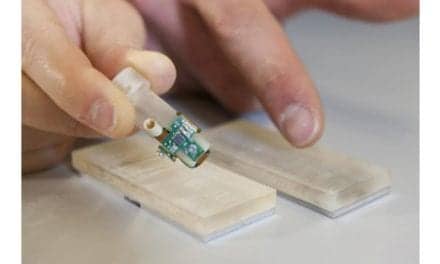Patients receiving periarticular injections of extended-release bipuvicane liposome recovered more quickly from total knee arthroplasty (TKA) surgery, a recent study suggests.
The study, published in The Journal of the American Osteopathic Association, compared outcomes of two types of postoperative pain-control methods in 16 patients who underwent a bilateral TKA procedure.
According to a media release from The Journal of the American Osteopathic Association, the patients received a femoral nerve block after the first procedure and a periarticular injection of extended-release bipuvicaine liposome after the second operation.
Orthopedic surgeon Brandon Horn, DO, from the McLaren Greater Lansing Medical Center in Michigan, performed both surgeries, and an average of 2.3 years separated the procedures.
Horn notes in the release that patients recovered quicker when they received periarticular injections of analgesic medication.
The study found that patients receiving a periarticular injection averaged 2.3 inpatient physical therapy sessions, compared to 3.5 inpatient physical therapy sessions for those receiving the femoral nerve block. The researchers also reported a half-day decrease in hospital stay. Those factors resulted in notable cost savings, per the release.
“To treat knee replacement patients with a nerve block, you’re looking at about $400 in additional costs for the procedure alone compared to that of the analgesic injection,” Horn states in the release.
“Adding in the cost of additional physical therapy needed and extended hospital stay, the injection can save around $1,615 per patient,” he adds.
[Source(s): The Journal of the American Osteopathic Association, Business Wire]





